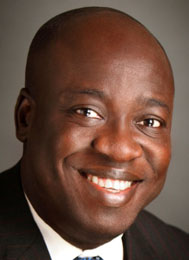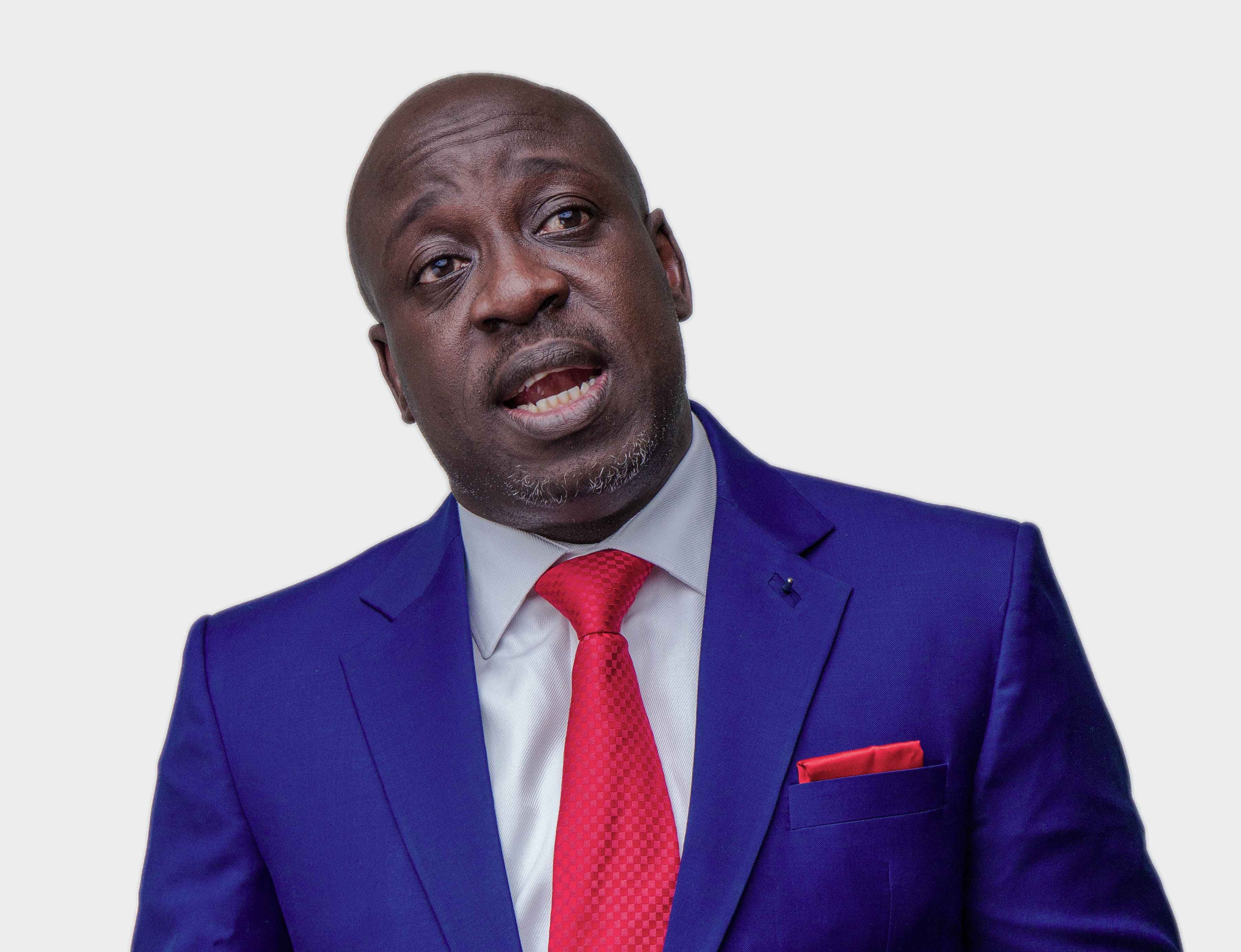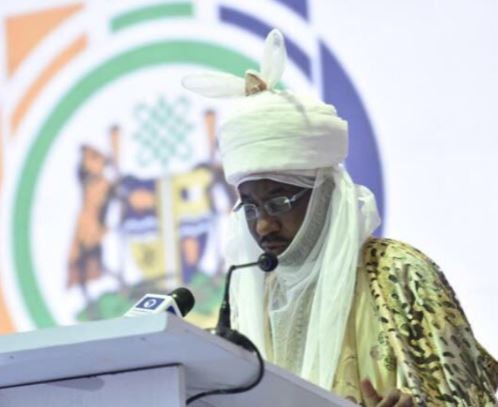Above was the title of a lecture that the late founder of Apple, Steve Jobs delivered to students of Stanford University in 2005. The first time I came across the lecture, it was the title that first struck me.
Stay Hungry; Stay Foolish; what could that mean? How could a billionaire be advocating hunger; and how could the inventor of one of the most revolutionary technology of our age be canvassing foolishness? However, after reading the article, I realized what Jobs was saying. If we must realize our full potentials, we must remain constantly in a state of want; we must sustain the need to know. We must retain that sense of wonder, that sense of curiosity, which are the key drivers of our hunger to learn, to know, to get better.
I have a two-year old girl, who recently brought home to me, in a very powerful way, the lesson that Jobs was trying to teach. I was going to see a neigbour and she insisted on following me. Then I told her to run. She said to me, “I will not run. I will fall.”
It immediately struck me that this little girl had just made a perfectly logical statement in a breathtakingly simple way that only a child is capable of. I recalled that only a little over two years ago, she was just a little baby who could only cry if she needed anything. Now, she could not only talk, but she has demonstrated that other skill that perhaps only human beings are capable of, logical thinking.
Advertisement
Over the last two and half years, I have watched my little girl grow from a little baby to a very questioning, chatty, funny and learning human being. She could report her brothers and even prescribe the punishments that should be meted to them. She could sing and dance. She could identify the alphabets, recognize colours, including purple and pink; and could count numbers 1 to 20. She could recite the some of the names of God, Al-Rahman (The Beneficent), Al-Raheem (The Merciful), Al-Malik (The King), Al-Qudus (The Holy) and so on. Every single day, she demonstrates some new capacity, some new knowledge, something that was not there yesterday.
As I reflect on this, I marvel at human being’s incredible capacity to improve, to learn, to transform and to change. But more importantly, my little girl has forced me to realize how much a creature with a brain could learn within a very short period. We all have this capacity, it is part of our nature as humans. What happens to us is that as we grow, we gradually lose that hunger, that desire to learn, to ask questions, to be curious, to adapt. We no longer wonder.
As we add years to our age, we reduce ourselves to counting numbers and measuring the progress in our lives by our material acquisition alone. If we reflect at all on our birthdays, the questions we tend to ask ourselves is ‘what have I achieved from my last birthday?’ How many cars? How many houses? How many designer bags? How much promotion at work? We hardly ever ask, how much have I learnt since my last birthday? How much have I improved as a human being? What was it that I didn’t know last year, that I now know?
Advertisement
Why do we stop learning? At what point do we stop asking, ‘where’, ‘how’, ‘why’, ‘when’, ‘what’; at what point do we stop being curious? At what point did we stop asking who created God? At what point do we stop wondering what He looks like? Whose image was on the moon? How does what get into the coconut? Where do babies come from? We all know that now, I suppose.
Just as it is difficult for us to tell precisely at what point we drop off to sleep, it may be difficult as well to tell the stage of our life that we lose that in-born capacity to look at the world and wonder. To me, the answer would be this. We stop improving at the very point that we think we have become full grown adults.
I believe that at no point in our life do we become full grown in mental, psychological, spiritual, and intellectual sense. There would always be some new levels to grow up to. The only full grown up human beings there are, I believe, can only be found in the mortuaries or the graveyards. Well, perhaps that’s what happens to us as we grow up. And I don’t mean the inevitable physical death. I mean something in us dies as we grow up; our capacity to wonder, to be curious, to ask questions, all these innate capabilities that we were born with; they all die when we become full grown adult. We become cynical, we become arrogant, constipated with our small knowledge, we become certain of everything; or worse still, we become comfortable in our ignorance, we become disdainful of knowledge and join the ‘who he epp’ crowd. Then we stop learning, we stop growing, then we atrophy in our mind, and then we die. That is what being a full grown adult means.
As I watch my little daughter grow, I wonder how long it would take before she also becomes a full grown adult. Ten years from now, if I tell her to run, instead of replying in that breathtakingly simple sentence, “I will not run, I will fall”, she would probably go like, “why do you want me to run? Don’t you know that if I run I may fall? I am sure you want me to fall that is why you are asking me to run. Why don’t you just tell me not to follow you?” She becomes complex in her speech; convoluted in her thoughts; heavy with prejudice and suspicion.
Advertisement
Sometimes, I wonder if I could do anything to help preserve the child in my daughter even as she grows. It is like a piece of banana whose ripeness signals the onset of decay. For now, all I could do is to continue to learn as much as I can from this wonderful little creature, she becomes like me, a full grown adult. Through her, I strive to rediscover the child in me that had left a long time ago. And I realise that it is possible after all to remain a child, without remaining childish.
Abdullahi, national publicity secretary of APC, delivered this address to the students of the Faculty of Social Sciences, University of Ilorin.
Views expressed by contributors are strictly personal and not of TheCable.
1 comments








In my own view, people don’t stop being hungry for knowledge, or rather being inquisitive, it is the society we live in that only appreciate inquisitiveness in children, because it cute and funny and it doesn’t cause a threat, because the children accept every answer given to them when they ask questions even if it doesn’t go in line with what they ask depending on how the adult answering the questions is able to cleverly present it to them and how well they know the psychology of the child involved, it wouldn’t matter how long the thread of questioning gets. But it is absolutely different in adults, where the questioner may even have more knowledge of what they are asking, they just need learning in another perspective or simply capture another view, therefore, the society tend to suppress people that ask questions by providing what may not necessarily be relevant to the question asked or at other times, disregard the question as being irrelevant or unrelated to the topic under discussion. For example, a two hour lecture can be delivered in Nigeria, and the question and answer session would be given as five or ten minutes, this is a clear demonstration of how our society is not appreciative of questions as an avenue of enhancing learning within adults, we are all to blame for the disconnect between our brains and the strive to always improve ourselves through asking questions, I could recall even during meetings in our offices, people don’t like those that ask questions after the meeting, the general house would always complain that so so person is holding everybody to ransome by their questioning and most chairpersons of meetings do frown at most of the questions asked, or give answers that discourage further questioning. So over the time people are more and more discouraged about improving themselves through inquisitiveness, and it eventually got to the point we find ourselves now.
Thank you.